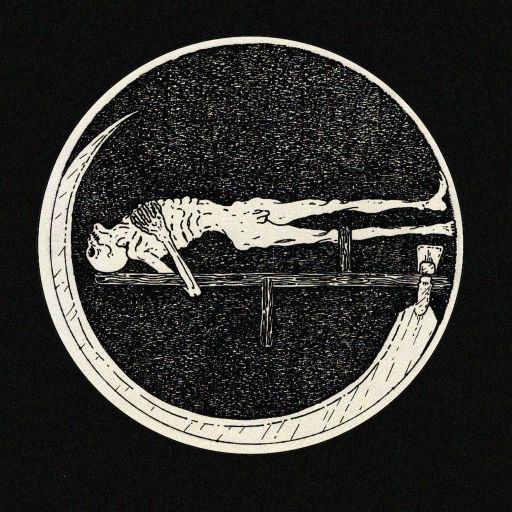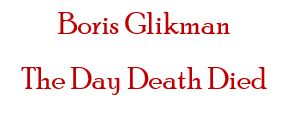It was widely known that Death had been ailing for some time. Its poor health had made it rather slipshod in the execution of its duties. Whole generations were being taken away in the flower of their youth, while other people were living for an extraordinarily long time - over 400 years in certain cases.
For a while Death hovered in a half-alive condition, with one foot in the grave, and mankind held its breath, fearing Death would rally and make a complete recovery.
And then the day came when Death breathed its last and nobody could believe their good fortune. It was hard to grasp that Death no longer dwelled in the world, and that one's life would never again be burdened with the ever-present spectre of extinction hovering nearby. No one would have to grapple any more with the problem of incorporating one's own demise into their lives.
The most eminent pathologists of the land were assigned the task of performing an autopsy on Death. Their unanimous conclusion was that Death died of natural causes. What nobody had suspected was that Death possessed a finite life span. Everyone had always assumed it would live forever, yet it too carried within itself the lethal seeds of mortality.
The next most pressing issue was the burial of Death. Issues never considered before needed to be addressed urgently, for the world wanted to be sure Death really was dead and would not rise again. Where should the funeral ceremony be held? According to which religion's rites should the memorial service be conducted? Who should give the eulogy? Where to entomb it?
The matter of whom to invite to the service proved to be the most intractable issue of all. A certain number of tickets were reserved for those most deeply affected by Death's passing - morticians, grave diggers, psychotherapists, blues singers, goths and horror film directors. Otherwise, it was nearly impossible to determine who was genuinely grief-stricken and who only wanted to attend the ceremony so as to be a part of this historic occasion.
Eventually, all of these matters were resolved by the International Committee for the Interment of Death. After lengthy debates, the Committee announced that the ceremony will be held in Jerusalem's Church of the Holy Sepulchre, the site of Jesus Christ's crucifixion, for Death's death was seen as the ultimate fulfilment of Christ's promise of Eternal Life. The heated objections of atheists and adherents of other religions were appeased somewhat by granting them special dispensation to be present at the ceremony inside the church. The world's political leaders and its leading religious figures, philosophers and scientists all gave eulogies, each expressing their own views on the meaning of Death and the meaning of its demise. It was widely agreed that Death was given the exact send-off that it deserved.
Straight after the funeral, the world kicked up its heels and celebrated.
When the unbridled, hysterical wave of joy at being liberated from Death's tyrannical rule had abated, people sobered up and recounted the ways Death had helped out in the past.
They recalled with fondness Death's unique ability to provide clear-cut and definitive solutions to any inextricable, inflexible or abstruse problem of existence; its unmatched faculty of erasing all pain, shame and misery; the way it was always there to readily and obediently offer its helping hand to anyone who would ask for it and the way in which it brought equality to the world and granted perpetual rest to the weary.
Religions could no longer survive without Death, for their appeal and authority derived from the promise of ideal and everlasting existence in the next world and from their expert knowledge of the nature of the Afterworld. New religions arose, prophesying that one day mortality would return to Earth and the virtuous would be rewarded with Eternal Death. Mankind recognised how fundamentally it depended upon Death's existence for the preservation of social order and peaceful international relations. Given that capital punishment and armed conflicts ceased holding any threat to a person's life, nothing stood in the way of lawlessness and immorality in human affairs, and countries went to war on the slightest pretext.
Life soon lost its meaning, for Death had been needed to provide the contrast that distinguished being from non-being. Without it, existence became unrecognisable, a grey shadow of its former vibrant self, and to be alive was now an unendurable, yet inescapable, fate worse than death.
Each human being was forced to find the strength and the courage to face a baffling future in which the saving grace of demise was no longer present. Only then was it realised how inextricably Death had woven its fateful thread into every aspect of man's existence and how much had been irremediably lost the day Death died.



